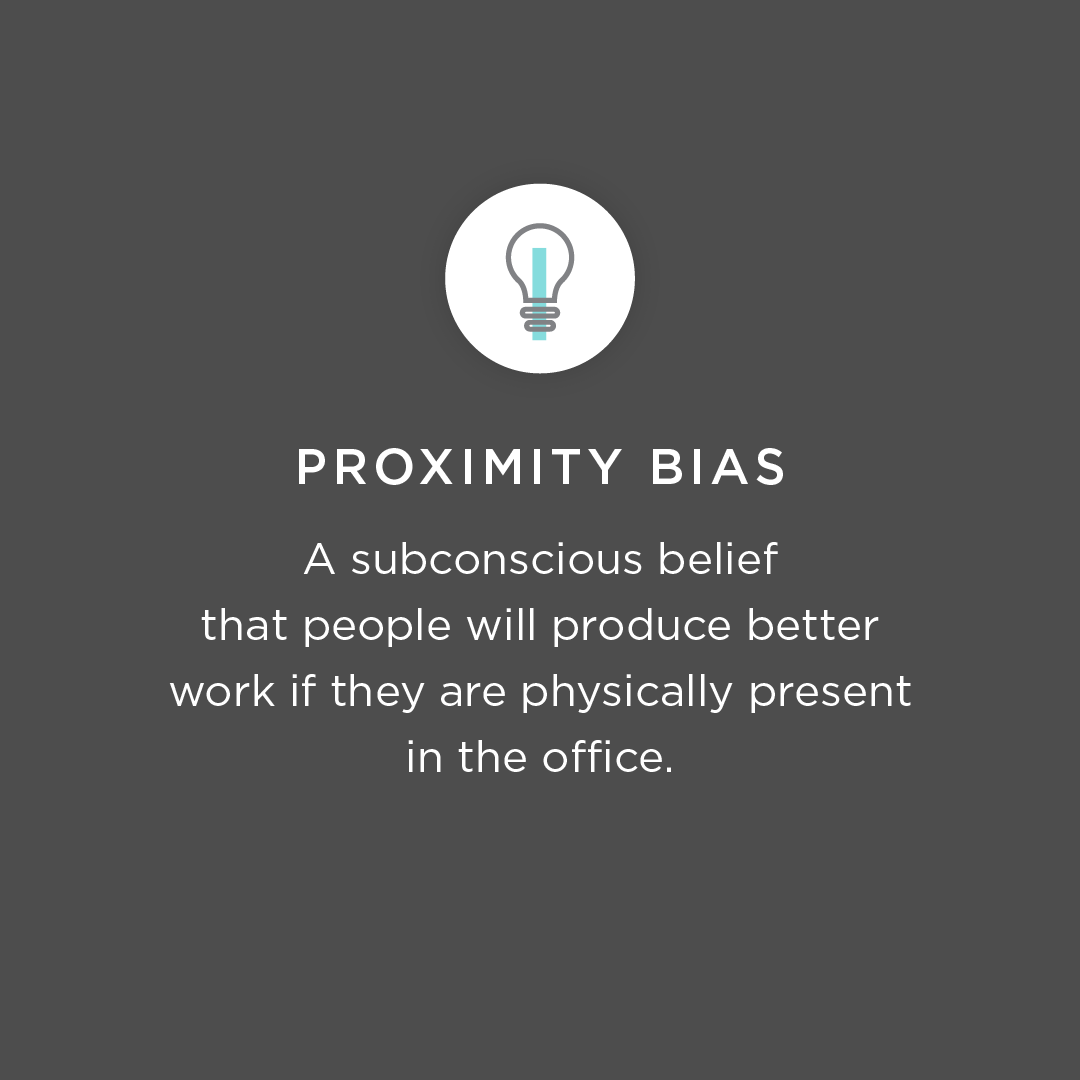
Unleashing Remote Work Excellence: Tackle Bias with Remote-Ready Psychometric Assessments from Great People Inside
In recent years, the world of work has undergone a profound transformation, with remote work becoming more prevalent than ever. While this shift has brought many benefits, such as increased flexibility and reduced commuting stress, it has also uncovered a subtle yet pervasive issue known as proximity bias. This phenomenon occurs when employees who are physically closer to their managers are favored and rewarded, not necessarily based on their objective results and key performance indicators (KPIs). In this blog post, we will shed light on proximity bias in remote work and explore strategies to mitigate its impact, promoting a fair and equitable work environment.
Understanding Proximity Bias:
Proximity bias arises from a fundamental human tendency to form stronger connections with those in close physical proximity. In a traditional office setting, employees who have the privilege of being physically close to their managers often benefit from increased face-to-face interactions, impromptu conversations, and heightened visibility. These factors can subconsciously influence managers’ perceptions and evaluations, inadvertently favoring those who are nearby.
Challenges in Remote Work:
In the context of remote work, proximity bias manifests differently but remains a significant concern. Virtual communication tools bridge the physical gap, but they cannot fully replicate the serendipitous interactions that occur in the office. Remote employees who work from different locations may feel isolated, disadvantaged, and overlooked due to their limited opportunities for casual interactions with managers. The absence of shared physical spaces can hinder the formation of personal connections, potentially skewing evaluations and decisions.
The Impact of Proximity Bias:
Proximity bias undermines the very essence of objective evaluation and fair treatment in the workplace. Employees who are favored due to their proximity may receive unwarranted benefits, such as preferential project assignments, promotions, or recognition, which are not necessarily aligned with their actual performance.
Meanwhile, high-performing remote employees who are physically distant may face a lack of visibility and miss out on growth opportunities, despite consistently achieving exceptional results. This bias can lead to decreased morale, demotivation, and even talent attrition.
Mitigating Proximity Bias in Remote Work:
To address proximity bias in remote work, organizations must adopt proactive measures to foster a fair and inclusive culture. Here are some strategies to consider:
Embrace transparent performance metrics: Establish clear, objective, and measurable KPIs that align with the organization’s goals. Ensure that employees, regardless of their physical location, have access to this information. Transparent metrics create a level playing field and enable fair evaluations.
Encourage regular feedback and communication: Promote ongoing conversations between managers and employees through structured feedback sessions, virtual check-ins, and team meetings.
Encouraging open dialogue helps to bridge the physical divide, fostering stronger connections and reducing the impact of physical proximity.
Implement fair project allocation mechanisms: Create systems that ensure fair distribution of projects and opportunities. Consider rotating project assignments, cross-functional collaborations, and mentorship programs to provide diverse experiences and exposure to all employees, regardless of their proximity to managers.
Prioritize inclusivity in decision-making: When making important decisions related to promotions, raises, or recognition, encourage managers to gather input from multiple sources. Encourage 360-degree assessments & feedback, peer recommendations, and objective assessments to obtain a holistic view of an employee’s performance.
Foster a remote-friendly culture: Invest in building a strong remote work culture that values collaboration, inclusivity, and diversity. Organize virtual team-building activities, promote informal social interactions, and establish virtual watercooler spaces to encourage remote employees to connect with their peers and managers on a personal level.
Conclusion:
Proximity bias in remote work challenges the principles of fairness, objectivity, and equal opportunity. By acknowledging its existence and taking deliberate steps to mitigate its impact, organizations can create a more inclusive and equitable work environment.
Transparent performance metrics, regular feedback, fair project allocation, inclusive decision-making, and a remote-friendly culture are key ingredients to counteracting proximity bias. Together, we can ensure that all employees, regardless of their physical distance, are recognized and rewarded based on their objective results and contributions to the organization’s success.
Ready to Experience Unbiased HR Solutions?
Great People Inside understands the unique challenges faced by remote workers and teams and has developed a range of customizable psychometric assessments to address these needs.
We believe that by leveraging the power of data-driven insights and objective assessments, companies can eliminate bias and make more informed decisions when it comes to talent acquisition, development, and team optimization. Our remote-ready assessments are specifically designed to cater to the nuances of remote work environments, ensuring accuracy and relevance in evaluating individuals and teams.
Curious about the impact of our unbiased HR solutions?
Take the first step towards transforming your remote work culture by requesting a free demo assessment from Great People Inside.
Our team of experts will guide you through the assessment process, showcasing the effectiveness and value of our tailored solutions for your organization.
During the demo, you will have the opportunity to explore the comprehensive features and functionalities of our psychometric assessments, experiencing firsthand how they can empower your HR strategies and drive positive outcomes. From personality assessments to cognitive abilities and team dynamics evaluations, our assessments provide valuable insights to enhance talent management and foster inclusive remote work environments.
Don’t miss out on this opportunity to test the power of unbiased HR solutions. Request your free demo assessment from Great People Inside today and embark on a journey of fair and effective talent management in the remote work era.
Together, we can unlock the true potential of your remote teams and achieve remarkable success.




